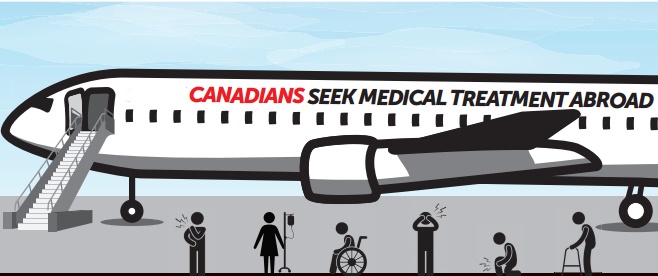
As the COVID-19 cases increase in Alberta, it is becoming more apparent that Alberta’s health-care system is becoming overwhelmed. This makes it difficult for people to access hospital services such as surgeries in a timely manner. According to Alberta Health Services, around 235 surgeries were delayed from late October through to November 2 and around 95 surgeries per week have been postponed since. Considering these delays and other reasons, people have started to look towards treatment in other countries. For some people, it is attractive to treat in other countries because the treatment is possibly faster and cheaper. However, there are three important factors to consider before making the decision to treat outside of Canada.
1. Travelling during COVID-19
According to the Government of Canada website, Canadian citizens and permanent residents are advised to avoid all non-essential travel outside of Canada. Especially if you are feeling sick, it is important to monitor your symptoms and not travel. Even if you want to, commercial airline restrictions may prevent you from boarding the plane.
It is also important to do some research on where you travel. Many countries have put in travel or border restrictions, airlines have reduced or suspended flights, and many airports have closed. Upon arriving in a different country, you must also be flexible because you could be subject to the health measures of this other country and restrictions are changing quickly.
2. Different countries have different medical practices and health standards
Since we do not have a globally adopted health standard, the quality of medical care received in different countries may vary. For example, some countries outside of Canada may have different licensing qualifications for their nurses, doctors, and pharmacists. Depending on how these professionals are trained, the treatment received may be different than that provided by Canadian healthcare professionals. Even if it could be cheaper to receive treatment in another country, complications or unplanned aftercare could cost more in the long run than having the same procedure in Canada.
In the unfortunate event that the procedure goes wrong, your options for legal action against these medical professionals may be reduced. As such, it is important to research ahead of time on the qualifications of who is helping with the treatment, where the procedure will be performed at, and the procedure itself. In particular, it may be helpful to consult with your main health care professional in Canada about your travel and procedure and consider the advice they provide.
3. Returning home from medical treatment
At the moment, according to the Government of Canada website, all “non-exempt” travelers returning to or entering Alberta from outside of Canada are legally required to quarantine for 14 days, monitor for symptoms, and get tested if any symptoms develop and isolate for at least 10 extra days from the beginning of symptoms or until feeling well (whichever takes longer). This added time has to be considered before traveling as well.
In order to protect yourself further, get copies of all medical records related to your procedure. When you return, review everything with your local health care professional including: the results of medical tests, descriptions of the procedure(s) you had, and information about the medications you received. According to the Government of Alberta website, for at least 12 months after returning, you should still be informing your health care professionals that you have received medical treatment outside of Canada.
In the end, the priority is that a person receive the treatment they need – whether it be in Canada or elsewhere.
https://globalnews.ca/news/7475913/covid-19-pandemic-surgeries-postponed-edmonton-health/
https://travel.gc.ca/travelling/health-safety/medical-care-outside-canada
Contact Us

